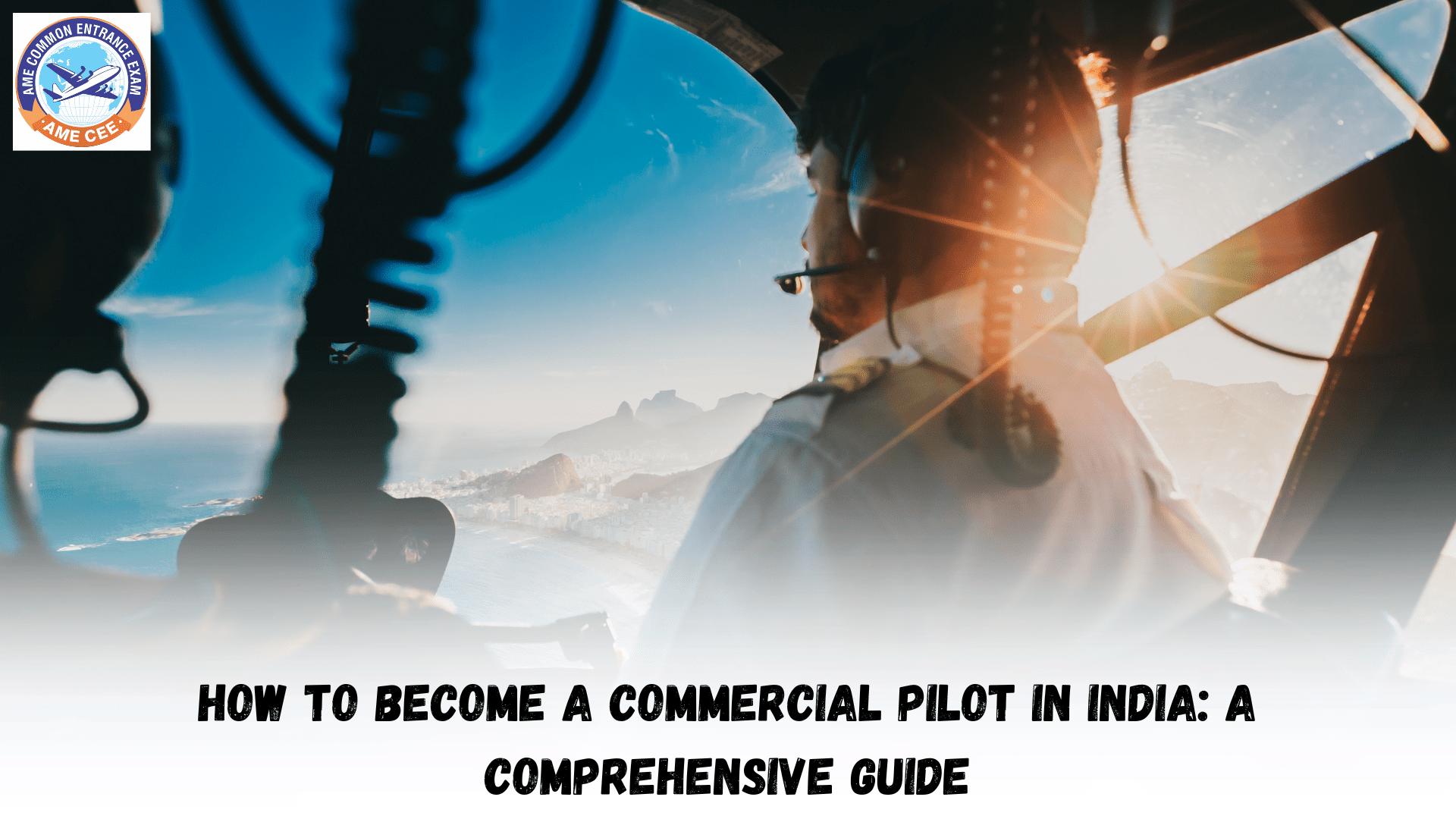A career as a Commercial Pilot offers excitement, responsibility, and a high-paying profession in the aviation industry. Becoming a commercial pilot in India requires rigorous training, meeting certain qualifications, and passing exams. This guide outlines the step-by-step process of becoming a Commercial Pilot in India, including the qualifications, training, exams, and personal traits required.
How to Qualify as a Commercial Pilot in India
To pursue a career as a commercial pilot in India, you need to obtain a Commercial Pilot License (CPL) issued by the Directorate General of Civil Aviation (DGCA). Below are the essential steps to obtain your CPL and the requirements involved:
Step-by-Step Guide to Getting CPL in India
- Educational Requirements
- You must have completed 10+2 with Mathematics and Physics, or hold an equivalent Diploma.
- You must have completed 10+2 with Mathematics and Physics, or hold an equivalent Diploma.
- CPL Training
- Enroll in a DGCA-approved flying school that offers Commercial Pilot Training.
- Complete 200 hours of flying time, which includes specific flight hours such as:
- 100 hours as a Pilot-in-Command (PIC)
- 250 nautical miles for cross-country checks
- 40 hours of instrument flight training (20 hours on a simulator)
- 50 hours of solo cross-country flying
- 15 hours of multi-engine flying
- 10 take-offs and landings by night
- Medical Fitness
- You must pass the DGCA Class I medical assessment to ensure you’re medically fit for flying.
- You must pass the DGCA Class I medical assessment to ensure you’re medically fit for flying.
- Pass the DGCA Theory and RTR Exams
- Along with your flying hours, you will need to pass theory exams related to aviation law, navigation, and meteorology, as well as the Radio Telephony Restricted (RTR) exam.
- Along with your flying hours, you will need to pass theory exams related to aviation law, navigation, and meteorology, as well as the Radio Telephony Restricted (RTR) exam.
- Gain Experience as a Co-Pilot
- After obtaining your CPL, you’ll begin your career as a Co-pilot. Over time, you will gain experience and seniority, eventually progressing to the position of Captain.
What it Takes to Become a Successful Commercial Pilot in India
Apart from the technical qualifications, a successful commercial pilot must possess specific personal qualities that contribute to a safe and efficient flying career. These characteristics are often referred to as the “Five Cs.”
Important Traits for a Successful Commercial Pilot
- Commitment
- Becoming a commercial pilot requires dedication. It is a long and challenging journey, involving extensive training and significant financial investment. Self-motivation and a strong desire to succeed are essential to enduring the process.
- Becoming a commercial pilot requires dedication. It is a long and challenging journey, involving extensive training and significant financial investment. Self-motivation and a strong desire to succeed are essential to enduring the process.
- Confidence
- Confidence is crucial when making decisions that affect the safety of passengers and crew. Whether you’re navigating around a storm or handling unexpected challenges, confidence allows you to stay calm and make the right decisions.
- Confidence is crucial when making decisions that affect the safety of passengers and crew. Whether you’re navigating around a storm or handling unexpected challenges, confidence allows you to stay calm and make the right decisions.
- Effective Communication
- Communication skills are vital for pilots to coordinate with co-pilots, cabin crew, and ground support teams. Clear communication ensures smooth operations and minimizes the risk of errors.
- Communication skills are vital for pilots to coordinate with co-pilots, cabin crew, and ground support teams. Clear communication ensures smooth operations and minimizes the risk of errors.
- Calmness and Composure
- Pilots must maintain composure, especially during emergencies. A calm demeanor ensures the safety of the aircraft and its passengers, as well as helps in managing stressful situations effectively.
- Pilots must maintain composure, especially during emergencies. A calm demeanor ensures the safety of the aircraft and its passengers, as well as helps in managing stressful situations effectively.
- Fitness
- Physical and mental fitness are critical to performing well in aviation. Being in excellent physical health ensures that a pilot can endure the physical demands of flying, while mental sharpness is crucial for making quick decisions.
Conclusion
Becoming a commercial pilot in India is a challenging yet rewarding journey. With the right training, medical fitness, and personal qualities like confidence, commitment, and communication, you can start your career in the aviation industry. Follow the guidelines above to achieve your dream of flying high as a commercial pilot in India.


